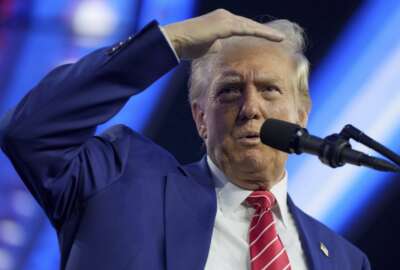FEHB program almost ready to welcome Indian tribe employees
Administrators are preparing to expand the Federal Employee Health Benefits plan in May to thousands of employees of Indian tribes and tribal organizations. Tribes...
wfedstaff | June 4, 2015 4:16 pm
Administrators are beginning the final preparations necessary to expand the Federal Employee Health Benefits Program to employees of hundreds of Indian tribes and tribal organizations.
That’s no small feat. It will be the first time the Office of Personnel Management opens the insurance program to people with no connection to the federal government.
“Typically we work with federal agencies and there’s the entire payroll and HR systems of agencies that we piggyback onto to operate the FEHB,” said OPM Director of Healthcare and Insurance John O’Brien. “This is somewhat like introducing several hundred potential new agencies, and we have to figure out how to get their information into our program then out to insurers so people can get coverage.”
OPM expects to mail insurance policy information to tribes any day now, marking a turning point in a long journey. While tribes have urged the government to open the federal employee coverage program to their workers, the change was mandated two years ago by the Affordable Care Act.
Since then, OPM has been tackling a complex logistical web involving hundreds of tribes and tribal organizations, each with their own autonomous government.
“We’ve had to work with groups in a way that we haven’t had to before,” O’Brien said.
Unlike federal agencies, the tribes don’t have to participate in FEHB, he said. “So there’s an entire educational step of whether or not the FEHB and what we offer is going to be right for the tribes,” he added.
OPM has met regularly with working groups of tribal leaders as they work through the technical steps, he said.
For some tribes, the incentive to join FEHB is great. While some of their employees may be tribal members and receive health care through the Indian Health Service, it often does not meet their needs, said National Congress of American Indians Executive Director Jacqueline Pata.
“In many places across the country, the Indian Health Service dollars run out early so the tribes are limited in which kinds of health options are available to provide their members,” she said. “Tribal governments have testified [to Congress] to say that sometimes by June they are having to make life-or-death decisions about who gets those resources and who doesn’t.”
Even when tribes have private health insurance programs, she said, quality has varied. For tribes with small workforces, they can be especially expensive.
“Being part of the FEHB program makes it much more affordable and standardizes some of those services,” she said.
In some respects, it is no different than welcoming hundreds of small businesses into the program.
“If you’re a small business or a small group in general, it’s very hard to get competitively priced insurance products,” O’Brien said.
He said he expected FEHB to have the greatest appeal among tribes and tribal organizations in rural or expensive areas.
For example, “Northern California tends to be a relatively high-cost area,” said O’Brien. “Being part of FEHB and our national pricing may make us a relatively good deal.”
FEHB plan participants won’t see an impact
At most, 350,000 employees of tribes or tribal organizations could join FEHB.
“The population that we’re bringing into the FEHB is young and relatively healthy,” said National Congress of American Indians Policy Director Ahniwake Rose.
But with more than 8 million people already in the federal healthcare program, it “is probably not going to have any measurable impact one way or the other,” on existing participants, O’Brien said.
He expects about 25,000 employees of tribes to join the plan this year. They should have insurance cards by May 1, he said.
RELATED STORY:
Copyright © 2025 Federal News Network. All rights reserved. This website is not intended for users located within the European Economic Area.





